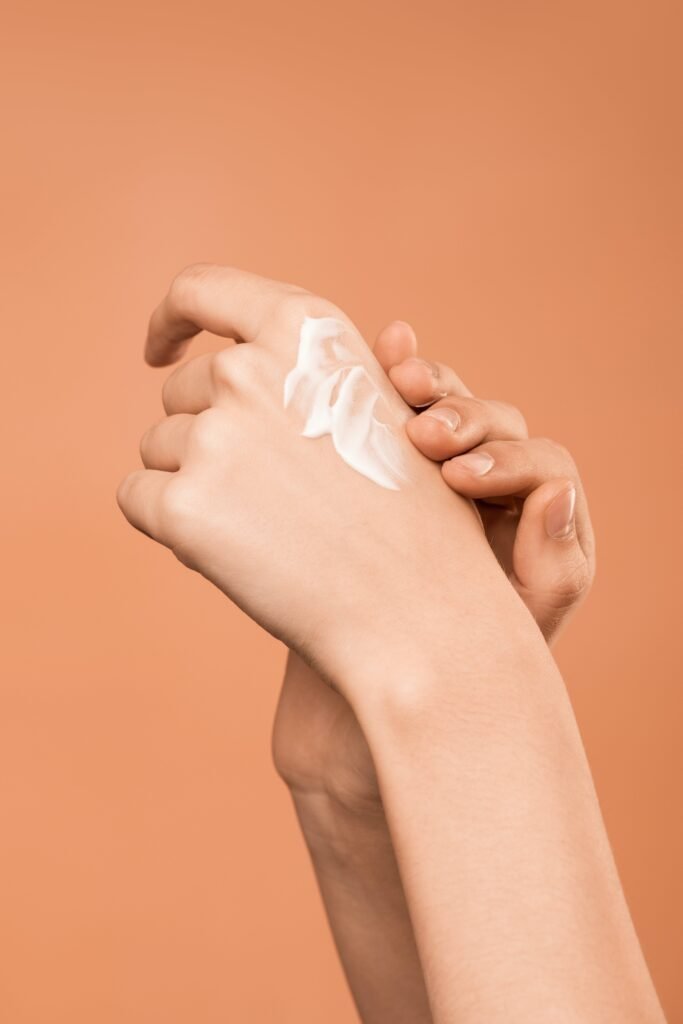Maintaining good oral hygiene is essential for a healthy smile and overall well-being. In this guide, you will discover a range of helpful tips and techniques to achieve effective oral hygiene. From brushing techniques to choosing the right toothpaste, we will explore how to keep your teeth and gums in optimal condition, ensuring a confident and radiant smile. So, let’s dive into the world of oral hygiene and unlock the secrets to a it!”

This image is property of images.pexels.com.
Brushing Techniques
Choosing the Right Toothbrush
When it comes to maintaining good oral hygiene, choosing the right toothbrush is essential. Opt for a toothbrush with soft bristles that will effectively clean your teeth without causing any damage to your enamel or gums. The size of the toothbrush head should comfortably fit into your mouth and allow you to reach all areas. Additionally, consider a toothbrush with a handle that is comfortable and easy to grip.
Brushing Frequency
Brushing your teeth regularly is crucial for achieving effective oral hygiene. It is recommended to brush your teeth at least twice a day, once in the morning and once before bed. This routine will help remove plaque and food particles, preventing the build-up of harmful bacteria in your mouth. Remember, consistency is key when it comes to brushing your teeth.
Duration of Brushing
While brushing your teeth twice a day is important, it is equally important to brush for an adequate amount of time. Aim for a two-minute brushing session each time you brush your teeth. This duration allows you to sufficiently clean all areas of your mouth, ensuring a thorough clean. Set a timer or use a toothbrush with a built-in timer to ensure you are brushing for the recommended duration.
Brushing Technique
Using the correct brushing technique is essential for effective cleaning. Hold your toothbrush at a 45-degree angle against your gumline and make gentle back-and-forth motions. Ensure you brush all sides of your teeth, including the outer, inner, and chewing surfaces. Don’t forget to brush your tongue as well, as it can harbor bacteria and cause bad breath. Remember to be gentle to avoid damaging your gums and enamel.
Using Dental Floss
Types of Dental Floss
There are various types of dental floss available that cater to different oral hygiene needs. Nylon floss is the most common type and is suitable for most people. However, if you have wider gaps between your teeth, consider using wide floss or dental tape. Floss picks or interdental brushes can be useful for those who struggle with traditional floss, as they provide an alternative method for cleaning between teeth.
Proper Flossing Technique
Learning the proper flossing technique is essential for maintaining optimal oral health. Start by taking a piece of floss about 18 inches long and wrap it around your middle fingers, leaving a small section in between. Gently slide the floss between your teeth using a back-and-forth motion, making sure to curve the floss around each tooth in a C-shape. Be careful not to snap the floss forcefully as it can cause injury to your gums.
Frequency of Flossing
Flossing should be incorporated into your daily oral hygiene routine. Aim to floss once a day, ideally before brushing your teeth. Regular flossing helps remove plaque and food particles from between your teeth and along the gumline, areas that are difficult to reach with a toothbrush alone. By flossing daily, you can prevent the development of gum disease and promote a healthy mouth.
Mouthwash and Rinse
Choosing the Right Mouthwash
Selecting a mouthwash that suits your specific needs can be beneficial in maintaining oral health. There are different types of mouthwash available, including fluoride mouthwash, antiseptic mouthwash, and cosmetic mouthwash. Fluoride mouthwash helps strengthen tooth enamel, while antiseptic mouthwash can reduce bacteria in your mouth. Cosmetic mouthwash provides a refreshing sensation and can temporarily mask bad breath.
Using Mouthwash Effectively
To use mouthwash effectively, pour the recommended amount into a cup and swish it around your mouth for 30 to 60 seconds, making sure to reach all areas. Spit the mouthwash out and avoid rinsing your mouth with water afterward, as this will dilute its effects. Mouthwash should be used after brushing and flossing, as it can provide an additional layer of protection and freshness to your breath.
Rinsing Techniques
Rinsing your mouth with water after meals or snacks can help remove food particles and reduce acidity in your mouth. Simply take a small sip of water, swish it around your mouth, and spit it out. This simple rinsing technique can aid in washing away any remaining food debris and prevent the development of plaque and cavities.
Tongue Cleaning
Importance of Tongue Cleaning
Cleaning your tongue is an essential part of maintaining good oral hygiene. Your tongue can harbor bacteria, food debris, and dead cells, which can contribute to bad breath and oral health issues. By incorporating tongue cleaning into your daily routine, you can effectively remove these harmful substances and promote a healthier mouth.
Techniques for Cleaning the Tongue
To clean your tongue, start by rinsing your mouth with water to remove any loose debris. Then, gently scrape your tongue using a tongue scraper or the back of your toothbrush. Start at the back of your tongue and move forward, applying light pressure. Rinse your mouth again to remove any residue. Incorporating tongue cleaning into your daily oral hygiene routine will help keep your breath fresh and prevent oral health problems.

This image is property of images.pexels.com.
Importance of Fluoride
Benefits of Fluoride
Fluoride is a naturally occurring mineral that offers several benefits for your oral health. It helps strengthen tooth enamel and makes teeth more resistant to decay. Fluoride also inhibits the growth of bacteria and can even reverse early stages of tooth decay. By using fluoride properly, you can effectively prevent cavities and maintain a healthy smile.
Sources of Fluoride
Fluoride is found in various sources that can contribute to maintaining optimal oral health. Most tap water contains fluoride, as it is often added to public water supplies. Additionally, many toothpaste brands contain fluoride, making it easily accessible for daily use. Fluoridated mouthwash, professional fluoride treatments, and certain foods and beverages also contribute to your fluoride intake.
Fluoride Supplements
In certain cases, fluoride supplements may be recommended by your dentist or pediatrician to provide additional protection against tooth decay. These supplements are typically prescribed for children who live in areas without fluoridated water or who are at high risk for developing cavities. It is important to follow the recommended dosage provided by your healthcare professional when taking fluoride supplements.
Diet and Oral Health
Impact of Diet on Teeth
Your diet plays a significant role in maintaining good oral health. Consuming a balanced diet that is rich in vitamins and minerals promotes healthy teeth and gums. Avoiding excessive consumption of sugary and acidic foods and beverages can help prevent tooth decay and erosion. Additionally, consuming enough calcium-rich foods, such as dairy products, strengthens your teeth and supports overall oral health.
Foods to Avoid
To maintain optimal oral health, it is important to limit your consumption of foods and drinks that are harmful to your teeth. Sugary snacks, carbonated beverages, and acidic foods can erode tooth enamel and contribute to the development of cavities. It is important to be mindful of these foods and drinks and make healthier choices to protect your oral health.
Foods to Include
Including certain foods in your diet can promote good oral health. Dairy products, such as milk and cheese, are excellent sources of calcium and promote strong teeth. Crunchy fruits and vegetables, like apples and carrots, stimulate saliva production, which helps neutralize acids and clean teeth. Additionally, foods rich in vitamin C, such as citrus fruits and leafy greens, support gum health and reduce the risk of gum disease.
Timing of Eating
Aside from the types of foods you consume, the timing of your meals and snacks can also impact your oral health. Frequent snacking throughout the day exposes your teeth to prolonged acidity, increasing the risk of tooth decay. Instead, aim to have balanced meals and limit snacking to reduce the amount of time your teeth are exposed to potentially harmful substances.

This image is property of images.pexels.com.
Regular Dental Check-ups
Importance of Regular Check-ups
Regular dental check-ups are essential for maintaining optimal oral health. Your dentist can detect early signs of dental problems, such as cavities, gum disease, and oral cancer, before they worsen. Through routine check-ups, your dentist can provide professional cleanings, address any concerns, and provide personalized advice on how to improve your oral hygiene routine. Attending regular dental appointments ensures that any potential issues are addressed promptly and helps prevent future problems.
Frequency of Dental Check-ups
It is recommended to visit your dentist for a check-up every six months. However, the frequency may vary depending on your individual dental needs. Your dentist will determine the appropriate interval between check-ups based on factors such as your oral health history, risk factors for dental problems, and the presence of pre-existing conditions. By adhering to regular dental check-ups, you can maintain a healthy smile and prevent dental issues from progressing.
Avoiding Tobacco and Alcohol
Harmful Effects of Tobacco on Oral Health
Tobacco use, whether it be smoking cigarettes or chewing tobacco, has detrimental effects on your oral health. Smoking increases the risk of gum disease, tooth loss, and oral cancer. It also stains your teeth and leads to persistent bad breath. Similarly, the use of smokeless tobacco puts you at risk for oral cancer, gum recession, and tooth decay. Avoiding tobacco in any form is crucial for your overall oral health.
Dangers of Excessive Alcohol Consumption
Excessive alcohol consumption can negatively impact your oral health in several ways. Alcohol can dry out your mouth, reducing saliva production and increasing the risk of tooth decay and gum disease. Heavy drinking can also lead to oral cancer, as alcohol irritates the tissues in your mouth and throat. It is important to drink alcohol in moderation, if at all, and maintain good oral hygiene practices to mitigate the potential risks.
Proper Denture and Orthodontic Care
Cleaning Dentures
If you wear dentures, proper care and cleaning are essential for maintaining their longevity and your oral health. Remove your dentures and rinse them after each meal to remove food debris. Use a soft-bristled toothbrush and a non-abrasive denture cleaner to clean your dentures thoroughly. Soaking your dentures overnight can help remove any plaque or stains. Additionally, remember to clean your gums and tongue using a soft toothbrush or tongue scraper.
Caring for Orthodontic Appliances
If you have orthodontic appliances, such as braces or aligners, following proper care instructions is crucial. Brush your teeth and appliances after every meal to remove food particles and plaque. Use interdental brushes, floss threaders, or special orthodontic floss to clean between brackets and wires. Avoid sticky, hard, or crunchy foods that can damage your appliances. Regularly visit your orthodontist for adjustments and check-ups to ensure your treatment progresses as planned.
Preventing Tooth Decay
Importance of Preventing Tooth Decay
Preventing tooth decay is crucial for maintaining optimal oral health. Untreated tooth decay can lead to pain, infection, and even tooth loss. By following proper oral hygiene practices and adopting preventive measures, you can significantly reduce your risk of developing cavities and keep your smile healthy and bright.
Fluoride Toothpaste
Using fluoride toothpaste is an effective way to prevent tooth decay. Fluoride helps strengthen tooth enamel and makes it more resistant to acid attacks from plaque and bacteria. When brushing your teeth, use a pea-sized amount of fluoride toothpaste and make sure to cover all surfaces of your teeth. Spit out the toothpaste after brushing, but avoid rinsing your mouth with water immediately, as this allows the fluoride to remain in contact with your teeth for longer.
Pit and Fissure Sealants
Pit and fissure sealants are a preventive dental treatment that can help protect your teeth from decay. This procedure involves applying a thin layer of protective material onto the chewing surfaces of your back teeth, where decay is most likely to occur. The sealant acts as a barrier, preventing food particles and bacteria from settling into the deep grooves and crevices of your teeth. Pit and fissure sealants are a safe and effective way to reduce the risk of tooth decay, especially in children and adolescents.
In conclusion, achieving effective oral hygiene requires implementing proper brushing techniques, utilizing dental floss, using mouthwash and rinse correctly, cleaning the tongue, understanding the importance of fluoride, maintaining a healthy diet, attending regular dental check-ups, avoiding tobacco and excessive alcohol, caring for dentures and orthodontic appliances, and preventing tooth decay. By following these tips and guidelines, you can ensure a healthy and vibrant smile for years to come. Remember, a little effort in maintaining good oral hygiene goes a long way in preserving your overall health and well-being.
